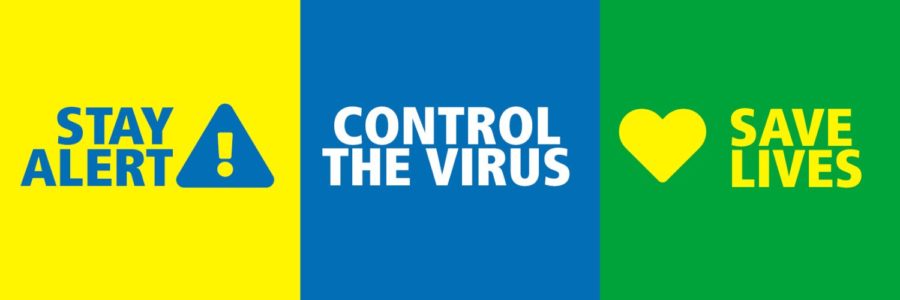COVID-19 Updates
June 26, 2020

** This information is received from the Government and regularly updated
25/06/2020
Updated guidance on claiming exceptional costs associated with coronavirus (COVID-19)
We have updated the guidance on claiming exceptional costs associated with coronavirus (COVID-19) for the period March to July 2020 and published instructions on how to claim these exceptional costs and the online claim form to do this.
The online form should be completed by 21 July 2020. There will be no opportunity to request extensions to this claims window or to resubmit a claim after that date.
The Education and Skills Funding Agency (ESFA) will aim to pay against claims, within funding limits and for identified cost categories, received by that date to local authorities at the end of August and to academies at the beginning of September.
The exceptional costs guidance can be found here:
https://www.gov.uk/government/publications/coronavirus-covid-19-financial-support-for-schools
Instructions on how to claim exceptional costs related to coronavirus (COVID-19) as well as a short video and link to the online claim form can be found here:
Updated guidance on year 11 transition funding for alternative provision
We have updated our guidance on the financial support available to alternative provision (AP) schools and colleges supporting current year 11 students into post-16 education. We have added more details on eligibility, what support is available and how to access the funding as well as publishing the claim form.
The full guidance and a link to the claim form can be found here:
https://www.gov.uk/guidance/alternative-provision-year-11-transition-funding
Online education resources for home learning update
We have updated our guidance for online education resources for home learning to include additional resources and new tips to help parents and carers with home education.
The list of resources can be found here:
https://www.gov.uk/government/publications/coronavirus-covid-19-online-education-resources
Updated guidance on keeping children safe online
With the Home Office and the Department for Culture, Media and Sport, we have updated advice and guidance to help parents and carers to keep children safe online during the coronavirus (COVID-19) outbreak to include new information on apps to help children stay safe online.
The advice and guidance on keeping children safe online can be found here:
https://www.gov.uk/government/publications/coronavirus-covid-19-keeping-children-safe-online
COVID Summer Food Fund
Due to the unprecedented nature of the coronavirus (COVID-19) pandemic, we recognise families will face increased pressure on household budgets over the coming months. We have launched a Covid Summer Food Fund to enable children who are eligible for benefits-related free school meals to be supported over the summer holiday period.
All vouchers for the summer holidays must be ordered at least one week before your school’s summer term ends. Please read the short guidance document in full before ordering, to ensure your orders are processed correctly. The payments for the fund will be met centrally by the Department for Education.
This funding is in addition to the free school meals national voucher scheme. We have updated our guidance on free school meals to include information on free school meals in further education, final ordering timescales for the national voucher scheme, guidance on ordering vouchers in multiples of £5, an update on school food contracts to include further guidance from Cabinet Office on Procurement Policy Note (PPN) 04/02 and information on wider support for families.
The COVID Summer Food Fund guidance can be found here:
https://www.gov.uk/guidance/covid-summer-food-fund
The FSM national voucher scheme guidance can be found here:
The information below has not changed since yesterday.
Collection of guidance for educational settings on GOV.UK
The Department for Education’s coronavirus (COVID-19) guidance has been grouped by subject and audience on GOV.UK to help you find the information relevant to you. In response to your feedback, future updates to guidance will also include a summary of the changes that have been made.
Guidance on what early years providers need to do during the coronavirus (COVID-19) outbreak can be found here:
https://www.gov.uk/government/collections/early-years-and-childcare-coronavirus-covid-19
Guidance on what school leaders, teachers and school staff need to do during the coronavirus (COVID-19) outbreak can be found here:
https://www.gov.uk/government/collections/guidance-for-schools-coronavirus-covid-19
Guidance on what colleges, universities and other providers need to do during the coronavirus (COVID-19) outbreak can be found here:
https://www.gov.uk/government/collections/further-and-higher-education-coronavirus-covid-19
Guidance on what local authority children’s services need to do during the coronavirus (COVID-19) outbreak can be found here:
https://www.gov.uk/government/collections/local-authority-childrens-services-coronavirus-covid-19
You can sign up to alerts on GOV.UK to be notified by email when new pages are published or existing pages change. You can set the frequency at which you receive these emails and unsubscribe at any time.
Sign up to GOV.UK updates here:
https://www.gov.uk/email-signup?link=/government/organisations/department-for-education
Department for Education coronavirus helpline
The Department for Education coronavirus helpline is available to answer questions about COVID-19 relating to education and children’s social care. Staff, parents and young people can contact this helpline as follows:
Phone: 0800 046 8687
Opening hours:
8am to 6pm – Monday to Friday
10am to 4pm – Saturday and Sunday
If you work in a school, please have your unique reference number (URN or UK PRN) available when calling the helpline.
Handwashing advice
It is essential that everyone washes their hands more often, using soap and water for at least 20 seconds. Hand washing with soap employs mechanical action that loosens bacteria and viruses from the skin, rinsing them into the drain. Drying hands afterwards makes the skin less hospitable to the virus. Hand sanitiser can be effective if soap is not available or the situation makes using soap less feasible (i.e. when outside) but using hand sanitiser provides none of the virus-destroying friction that rubbing your hands together and rinsing with water provides.
The latest guidance and video on hand washing can be found at:
https://www.nhs.uk/live-well/healthy-body/best-way-to-wash-your-hands/
The e-Bug project is led by Public Health England and has a dedicated webpage for learning resources on hand washing and respiratory hygiene. E-Bug has published posters on hand hygiene, and covering coughs and sneezes, to display in bathrooms, classrooms and shared spaces.
The hand and respiratory hygiene posters and other educational resources can be found here:

